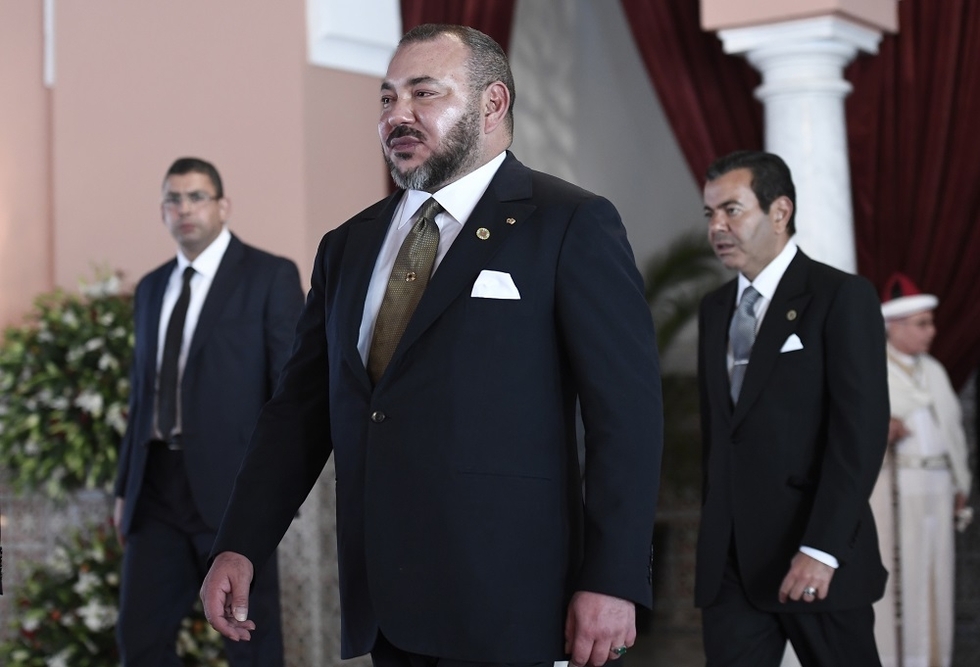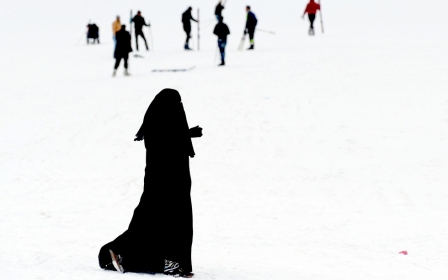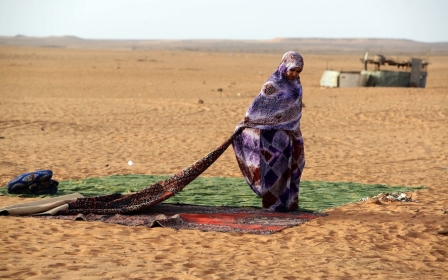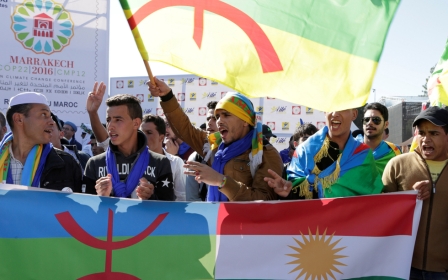ANALYSIS: Morocco faces political deadlock, but that suits the palace

RABAT, Morocco - The alliance between the Moroccan palace and the Islamist Justice and Development Party (PJD) has become increasingly volatile in recent months, amid the PJD's inability to form a coalition government.
After prevailing in the October legislative elections with a minority government, winning 125 out of 395 parliamentary seats, PJD leader Abdelilah Benkirane was reappointed prime minister by King Mohammed VI, and tasked with finding a way to work with other political parties.
Benkirane, a populist politician who has led Morocco's government for more than five years, has since been working to end the political crisis and prevent a new election call, while simultaneously manoeuvring to avoid making too many concessions.
The PJD officially cites a strong will to follow the guidance of the king's cabinet, releasing statements to confirm the party's total allegiance to the monarchy, including its "determination to deal positively and responsibly with the royal directives concerning the acceleration of the formation of a government".
This seems to be attrition warfare against Benkirane, to force him into making all possible concessions - Fouad Abdelmoumni, economist
Earlier this month, negotiations stalled between Benkirane and Aziz Akhannouch, secretary-general of the National Rally of Independents party, and Mohand Laenser, secretary-general of the Popular Movement.
Analysts say that this appears to be the result of political manoeuvring by the monarchy to force the PJD into ceding key ministerial posts.
"This seems to be attrition warfare against Benkirane, to force him into making all possible concessions," said Fouad Abdelmoumni, an economist and activist who was jailed under Hassan II, the king's father.
"[This would entail] letting him be the head of the government with little power, in a coalition government, while yielding strategic portfolios."
A compromise must come
Observers say that the monarchy must eventually compromise and end this arm-wrestling, in an effort to prevent future tensions and political instability.
The "counterproductive" manoeuvring by the palace may in fact reinforce the PJD's popularity among its electoral base, Abdelmoumni said.
"If there are [new] elections, the PJD would have the advantage of being the victim," he said.
The PJD's ascension to power has been a complicated one. The party was almost banned after a series of deadly attacks in Casablanca in 2003, but reemerged as a strong political force in 2011, after uprisings sweeping the Arab World reached Morocco.
Thousands of people took to the streets, demanding more democracy in the country.
At the time, the PJD - unlike the country's other banned but tolerated Islamist party, the Justice and Charity Party - did not join the protests. Instead, it ran for the elections and won on an anti-corruption platform.
That same year, constitutional changes guaranteed that the prime minister must be chosen from the party that wins the elections.
While the PJD has been lauded for pushing for necessary reforms on subsidies, the party has also been criticised for failing to hold the monarchy accountable.
Negotiations stalled because of conflict between the Islamist-led bloc and centrist parties discreetly backed by the monarchy - Riccardo Fabiani, Eurasia Group
Experts believe that the PJD's sustained popularity - particularly in the face of its failure to fulfill its anti-corruption promises - is perceived as a threat by the country's establishment, which risks losing control if one party becomes too powerful.
"The negotiations are stalled because of a fundamental conflict between the Islamist-led bloc and a coalition of centrist parties discreetly backed by the monarchy," Riccardo Fabiani, a senior analyst with the Eurasia Group, said.
"The former group wants gradual change within the existing framework. Their idea is that you can achieve democratisation and economic development by operating within the current set of institutions and constraints," he added.
"The monarchy and its centrist allies are afraid that letting the Islamists run Morocco, without any checks, could lead to a Turkey scenario, where they eventually gain a majority and threaten the existing institutions."
Good for the gander...
According to Vish Sakthivel, the Fox Fellow at the Foreign Policy Research Institute's Middle East programme and an expert on political Islam in Morocco, the palace and the PJD operate as "mutually legitimising forces".
"Benkirane has had this unconventional practice of disclosing tensions with the palace, perhaps in discreet attempts to highlight to the public the palace's [interference]," Sakthivel said.
"The last thing the palace wants is this de facto power-sharing situation, but [it also] doesn't want their efforts to undermine or delegitimise the Islamists to be overt or heavy-handed," she added.
"While an 'alliance' with a genuinely popular party works to maintain the country's political stability, the palace would much rather be in such an arrangement with a party it controls."
How much longer this political deadlock will endure remains unclear, as the country's constitution does not dictate a specific timeframe for the prime minister to form a government.
As for the for functioning of the country in the absence of a government, observers said it will be business as usual.
"There remains the real government close the palace," Abdelmoumni said, referring to the king's advisers. "[This structure] continues to exist regardless of the existence or non-existence of a formal government."
This article is available in French on Middle East Eye French edition.
Middle East Eye propose une couverture et une analyse indépendantes et incomparables du Moyen-Orient, de l’Afrique du Nord et d’autres régions du monde. Pour en savoir plus sur la reprise de ce contenu et les frais qui s’appliquent, veuillez remplir ce formulaire [en anglais]. Pour en savoir plus sur MEE, cliquez ici [en anglais].




